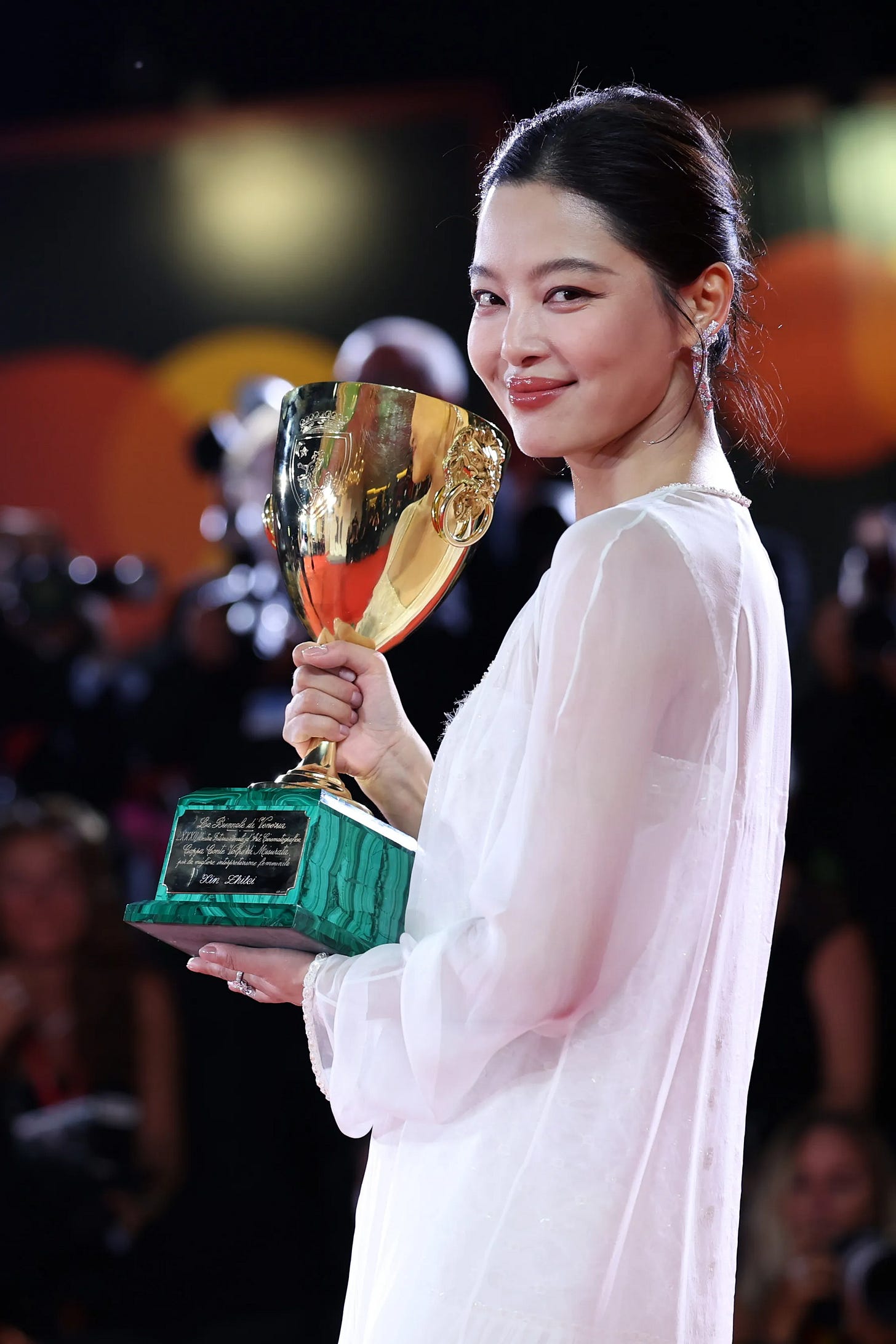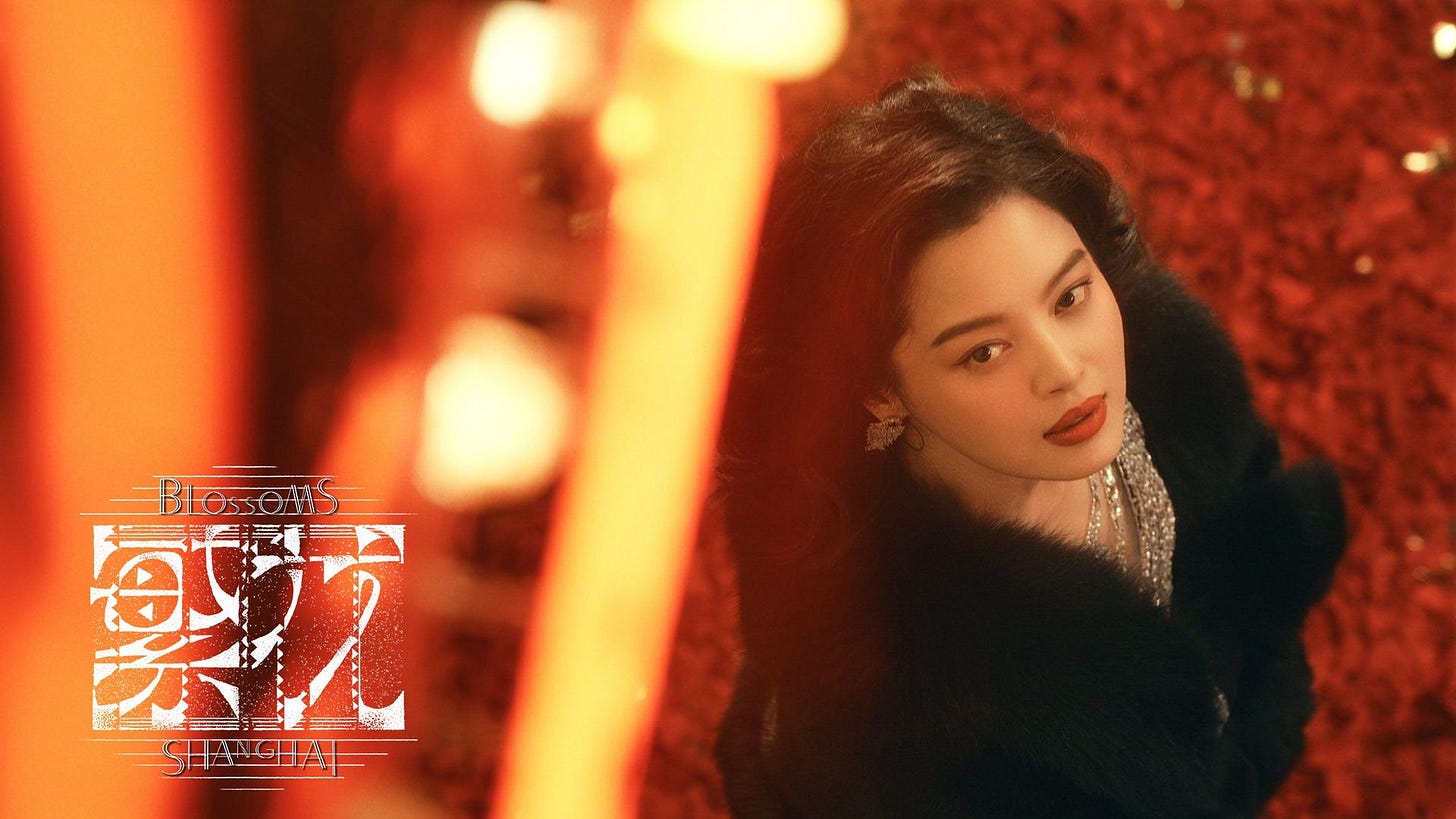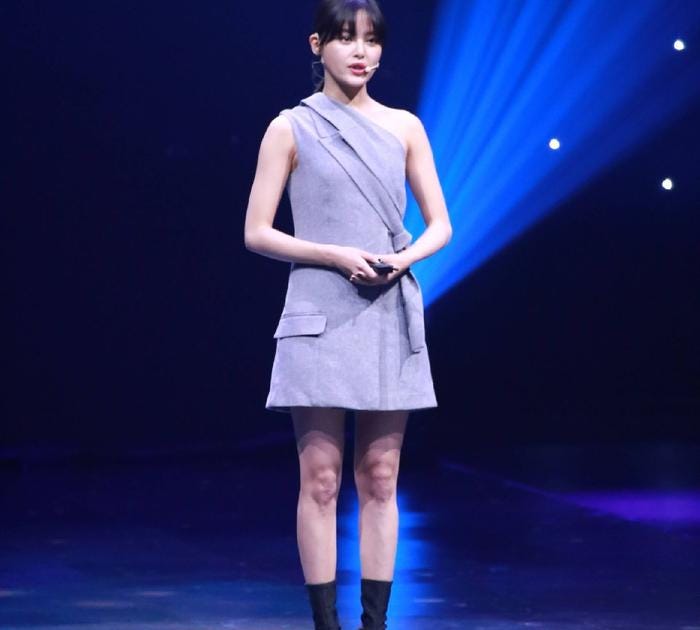Xin Zhilei: Always there is the desire urging, always the convention restraining
Venice Film Festival best actress embraced ambition and rejected shame in wanting more in a 2018 speech.
Xin Zhilei, a 39-year-old Chinese actor, won the best actress award at the Venice Film Festival on September 6, 2025, for her role in The Sun Rises on Us All, directed by Cai Shangjun. She is the first Chinese woman in 14 years to take the Golden Lion trophy, a feat that quickly became a source of national pride.
Her win has set social media abuzz with accounts of her unlikely rise. Born into poverty in a rust-belt city in China’s north-east, Xin has made a career out of defying expectations. In a widely shared 2018 speech, translated below, she confronted head-on the labels attached to her—an actor “full of desire”—and argued that ambition was not shameful. Regardless of gender, everyone has the right to persevere, strive, and hold on firmly for what they aspire to, she said.
That candour preceded a major break of her career: a leading role in Blossoms Shanghai (2023), Wong Kar-wai’s first television series, in which she played a dazzling and ambitious entrepreneur. Last year she further cemented her reputation by winning best leading performance at the Shanghai Magnolia Stage Performance Awards, China’s equivalent of the Emmys, for her two-hour solo turn in the Chinese production of Prima Facie.
Hello everyone. I’m Xin Zhilei. Thank you so much for your encouragement.
As an actress, this is my very first speech. And to be honest—I’m really scared, and nervous. Right before stepping on stage, I was still wondering…could I just run away?
But there’s no turning back. I’m already here.
And my life experience has taught me something: the things you fear the most are exactly the things you should do. Because once you face them, the next time, they won’t scare you anymore. You have to confront your fears head-on.
So here I am. Standing before you. Ready to share a little of my life experience. Thank you.
I’ve been acting for about nine years now. But for the first seven or eight years, I remained largely unknown. It wasn’t until last year—when I appeared on a show called The Birth of an Actor (2017) that more people began to notice me. I finally gained some recognition. People started saying, “She’s actually a capable actor.”
But at the same time, I was also given a rather “interesting” label: an actor who wears her ambition and desire right on her face.
I once saw a post on Zhihu [Chinese equivalent of Quora] asking: “What does a not-to-be-messed-with girl look like?” And one of the top-voted answers was my photo. My name. Xin Zhilei.
Now, the truth is, I don’t think I’m particularly cold or unapproachable by nature. But honestly, I kind of like this image. I think it’s pretty cool.
Then, under one of my Weibo [Chinese equivalent of Twitter] posts, I noticed comments saying things like: “Never marry this kind of woman. She seems expensive.”
So let me just state clearly: I’m actually not expensive. I eat very little. I take good care of myself.
But all in all, it becomes a label: someone who wears her desires and ambitions on her face.
And that’s what I want to talk about today. Desire.
To me, desire is simple. Tonight, I might want a chicken leg. A nice pair of shoes. I want to be famous. To become an international superstar. To me—they’re all the same. Simple desires.
But here’s the thing: if a woman says it out loud, if she says she has strong desires toward the world, she’s more likely to be met with negative labels. People say: “Why can’t she just be content?” or “Women should be reserved. Subtle.” It’s as if having desire makes you ungrateful, or restless.
But I don’t like being defined that way. Because first and foremost as a person, as an equal being I believe everyone has the right to pursue what they want.
Next, I would talk about my desires.
Probably everyone wrote an essay like this when they were young: What is your dream? Back then, I wrote that my dream was to become Wu Zetian, the only woman emperor in Chinese history; my dream was to be Monkey King, the hero in the novel Journey to the West; my dream was to be Doraemon and have the Anywhere Door. And I was scolded by the teacher.
The teacher said my dreams were too unrealistic, that I was aiming too high without being grounded.
As I grew a bit older, I watched movies—The Legend of the Swordsman (1992), A Chinese Odyssey (1995), Titanic (1997). And I started fantasizing about how amazing it would be if one day I could appear in those stories, if one day I could be a character like that.
I cried and laughed with the movies, but back then, being an actor felt too far away from me, a dream I didn’t even dare to imagine. Later, when I was fortunate enough to have the opportunity to become an actor, I made up my mind not to let this luck go to waste. I want to be a good actor, one who can play nice characters.
I’ve said before that I want to be famous because I want more power to choose such roles, not just be typecast as villains or ghost women. I also want to move people to tears and laughter through my performances. And I hope that one day, when children look back on the roles I’ve played, they’ll be left with beautiful memories, not nightmares.
Maxim Gorky once said that unfulfilled ambition is merely selfish ambition, but once realized, it becomes noble ambition. [I haven’t been able to locate the exact source of this quote. —Yuxuan’s note] Since I am still on my journey, still striving and fighting, I need this kind of selfish ambition. It represents my desire for my career—I want to become an actor with the power to choose.
When I was in school, I had a crush on a boy and really wanted to tell him. At the time, many of my friends, mostly girls, tried to talk me out of it. They said, “Don’t be the one to tell him, don’t pursue him. He won’t cherish something that comes too easily.” But I thought, no; if I don’t tell him, and he doesn’t tell me either, then what shall I do? Should I just end up choosing from a bunch of people I don’t even like?
So I secretly got his phone number and sent him a confession text. I still remember that message. I sat nervously on the toilet, editing it for about two hours before finally hitting send.
Later, we got together. And later still, he broke up with me.
Although it didn’t work out, and although it unfortunately turned out just as my classmates had predicted, and though I cried for a long time, I don’t have a single regret.
Later, I even wrote about this heartbreak in my diary. I wrote in a very motivational tone, saying that some obstacles aren’t as difficult as they seem. As long as you’re willing to take the first step, you might find true love.
I want my partner to be someone I love and who loves me in return. I refuse to settle for anything less. Even if I fail, I am still always ready to try again, with the hope and longing for love. That’s my desire when it comes to love.
I was raised by my grandparents, so they were the closest people to me. One year, my grandfather was diagnosed with advanced liver cancer and came to Beijing for treatment. At that time, I really wanted to take him out for a roast duck. But I had just arrived in Beijing and was living on a tight budget. I only had 2,000 yuan. In the end, neither of us enjoyed that meal much. My grandfather knew I didn’t have much money, so he was reluctant to order anything.
Before my father passed away, he had been paralyzed for about five years. One day, he told me, “I really want a computer. I want to go on QQ [Chinese equivalent of Facebook] and chat with your uncles.” But because money was tight, I refused and didn’t buy him one. Now that he’s gone, every year I can only burn paper-made computer offerings for him.
That’s why I want to be wealthy. I admit I have a desire for money—because I never want to feel that kind of regret again, never want to fail to provide over a meal or a computer.
That’s right—career, money, romance, family, friendship—I desire them all. I don’t want to lie to myself, and I believe I have the courage to pursue these things.
I thought I was determined enough, but there were times I felt completely lost. Maybe you wouldn’t believe it, but I used to be a really zen person. There was a period of three or four years when I couldn’t get any acting roles. My only job every day was going to auditions, dozens, even hundreds a year, nonstop. Sometimes I lost confidence and felt pretty desperate.
So I started reading a lot of religious books. I told myself not to fight, not to compete, to stay calm and detached. I thought if I had no desires, I’d have no demands. After all, life is what it is. Everyone dies eventually, so why struggle? Sometimes I feel like even the word “meaning” has no meaning, let alone life itself.
I thought I was incredibly unconventional and cool, which made me become casual and half-hearted when attending auditions later on. I didn’t care about the results, and as a consequence, even fewer people wanted to work with me.
During that period, I was extremely unhappy. I felt like I was no different from “a salted fish” [Chinese slang for a soulless person with no intention of doing anything] every day, just wishing for the apocalypse to come sooner.
But I was lucky. I met a slightly older friend who said to me: Why are you unhappy? It’s because you’ve been deceiving yourself. You’re making excuses for your lack of effort. Do you think you’re so outstanding that you can get everything you want without trying? You say you don’t want anything. Then tell me, what do you actually have? You’re just unwilling to admit your own failure.
I kept thinking about these words for a long time. Yeah, what do I really have? What right do I have to say I don’t want something or to talk about giving up? So from then on, I decided to be honest with myself, because I still have so many unfulfilled dreams and so many unresolved desires.
Of course, even when you decide to face your desires honestly, the road ahead still won’t be easy, because what’s harder than facing your desires is figuring out how to persevere when difficulties arise.
Three years ago, I came across a television drama I really liked called The Moon Embracing the Stars (2015). It wasn’t very popular, and probably not many people have seen it, but the director, Ding Hei, is truly exceptional. Even before I became an actor, I was a fan of his work. I really loved shows like Jade Guanyin (2003) back then.
When I read the script for this series, I was instantly drawn to it. It’s a female-led drama with over a thousand scenes. I felt that the script was written for me, and I was extremely eager to land the role. So I tried every possible way to get an audition.
When I first met the director, I passionately expressed my interest and shared all my experiences with him. I wanted to make it clear that I really wanted this role and that I was a perfect fit. However, after a brief trial performance, the director asked me to leave.
I was pretty disappointed, but I wasn’t ready to give up. I thought to myself, I can’t just quit like this. So I reached out to the production team again and asked for another chance.
When I went back, there were many actors all sitting together, competing for the same role.
To be honest, I was pretty anxious at the time because I felt I understood this character so deeply. This person resonated with my own experiences so strongly that I was convinced the role was written for me and that I had to be the one to play it.
I expressed this directly to the director and producers, and I even spoke up openly in front of all the actors, insisting that I must have the part.
But after I finished speaking so passionately, I could sense the strange looks from those around me, probably similar to what people thought of me during The Birth of an Actor: “Why is she so competitive, so eager to win?”
Still, I didn’t care too much and said what I had to say.
In the end, it didn’t change anything. They just sent me back.
I felt like I had run out of good ideas. All I could do was keep telling the director, over and over, that I wanted this role. Surprisingly, a few days later, the director asked me to come in for a makeup test. After going through a series of tests and the crew’s preparations, I eventually landed the role.
Later, I asked the director, “Why did you eventually choose me?” He said they had originally planned to cast someone more well-known or experienced for the role. But it was my persistence, the way I expressed my passion, that moved him. He felt that I was the character, that no one fit the role better than I did.
I’m grateful for the director, but I’m also thankful to myself for being so persistent, and for desiring so strongly what I wanted.
Later on, for projects like Ruyi's Royal Love in the Palace (2018), The Birth of An Actor, and some films shot this year such as The Perfect Blue, I went through no fewer than five rounds of auditions each time.
I don’t know why my path has been so tough. Every audition felt like dying once over, because I know myself. I know I’m not that exceptional, and I don’t have that kind of “it-has-to-be-you” quality or reputation. So I had to endure even greater struggles than before to secure the roles I wanted.
Although these processes were painful, I believe my persistence was right because I ultimately gained the role I desired and became who I am today. Although the road ahead remains long, I am prepared to persevere and strive to the very end.
Speaking back to desire, being insatiable, restless, or expensive isn’t wrong. Refusing to accept the status quo or resign oneself to mediocrity isn’t wrong either, because all people are free and equal, entitled to choose their own destiny. You may prefer a quiet life focused on family and simple joys, or you may aim high and fight ambitiously.
What matters is not to deceive yourself. You must be clear about what kind of life you want and what your true desires really are.
I don’t think desire is shameful. What’s shameful is knowing what you want but telling yourself you don’t, then envying and ridiculing others’ desires and successes. That, I believe, is wrong.
So I don’t see “desire” as a negative word. It can also be called “ambition.” Regardless of gender, everyone has the right to persevere, strive, and hold on firmly for what they aspire to. That’s why I’m proud to have a face “full of desire.”
I don't think desire is shameful. What’s shameful is knowing what you want but telling yourself you don’t, then envy and ridicule others’ desires and successes. That, I believe, is wrong. So I don’t see "desire" as a negative word. It can also be called "ambition". Regardless of gender, everyone has the right to persevere, strive, and hold on firmly for what they aspire to. That’s why I’m proud to wear my desires on my face.
Thank you.








Such a great articulation of why desire and ambition are not and should not be dirty words!